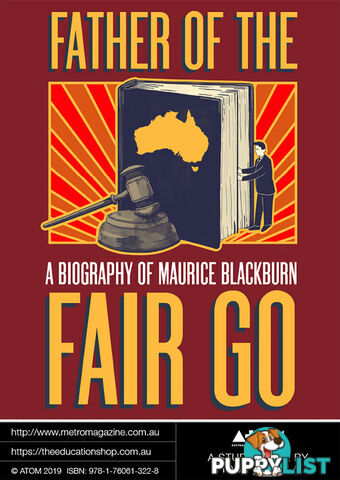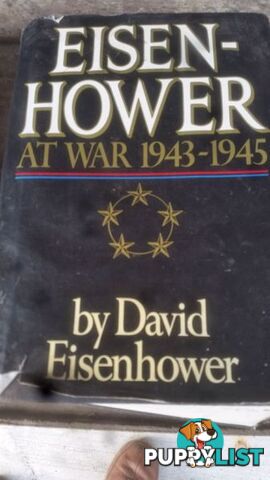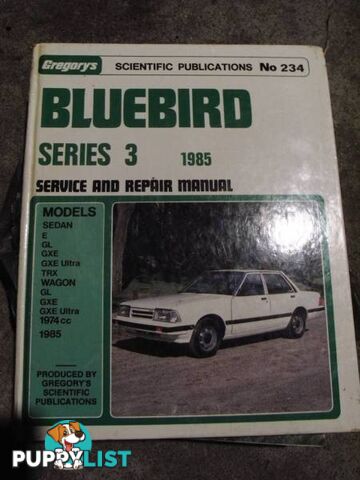This ad is on hold, please check again later.
Father of the Fair Go: A Biography of Maurice Blackburn ( Study Guide)
$7.50

DESCRIPTION
Maurice Blackburn – the name might be familiar but the life and times less so. A range of esteemed leaders and leading thinkers – politicians, union bosses, academics, historians, lawyers – come together in Father of the Fair Go to share their admiration, knowledge and wonder of Maurice Blackburn, a thoroughly unique individual in Australian political and social history. Using archival footage, animated graphics and a diverse range of interviews, Father of the Fair Go pieces together a portrait of a truly remarkable man who is lesser known than he should be. It provides an opportunity for students to learn about his contribution to Australia's political and industrial landscape and the lasting effects of his his legacy. Born 1880, Maurice Blackburn's worldview was defined by ideals of fairness, justice and equality. From a young age, he noticed the disparity between rich and poor and a fire burned within him his whole life to correct this injustice. As a university student, Maurice's political ideas became clearer. He joined the Socialist Party first and then later the Labor Party in order to play a role in state and federal politics. Believing that everyone was equal before the law regardless of their social standing, it is not surprising that Maurice went on to practice the law and use instruments of the law to tip the scales of justice toward those who were most disadvantaged, such as workers and the poor. Through his legal firm, Maurice Blackburn & Co., Maurice worked closely with trade unions and workers themselves, providing pro bono advice on a regular basis, to reform industrial law and to defend workers' rights. During this time, he became known as a highly skilled negotiator, resolving one of Australia's longest running strikes – the Seamen's Strike of 1919. Driven by the desire to effect societal change on a broader scale, Maurice entered politics at several stages in his life. He held seats in both state and federal parliament, and while these stints allowed him to fight for important causes, they were also marred by the grubby nature of politics whether it be preselection battles or the conflict between Maurice and official Labor Party policy. Maurice found himself at odds with the Party on several occasions and was ultimately expelled from the Labor Party in 1941, marking the beginning of his stint as an Independent. Maurice lived through a turbulent era that included Federation, two World Wars and the Depression. These major historical events threw up questions and issues that Maurice responded to with passion and principle. One of these was conscription, which he opposed his whole political career, much to the dismay of the Labor Party apparatchiki. He also maintained uncompromising stances on war and fascism, which also put him at odds with Labor policy. In his refusal to kowtow to official Party policy, Maurice represents a paragon of political office that puts principle over pragmatism. Of equal importance in Maurice's life was his marriage to Doris Hordern, a first-wave feminist, campaigner and activist. Not surprisingly, they met on the campaign trail and formed a couple at a time when the Australian intelligentsia was inspired by the theories and ideals of feminism and socialism. To many, their union saw the formation of a formidable 'power couple'. Maurice's achievements include resolving some of Australia's largest ever industrial disputes, reforming industrial law, laying the foundations of the civil libertarian movement and establishing a law firm renowned for its social justice agenda that continues to this very day. What are the lessons we can take from Maurice's life? Father of the Fair Go highlights the way political parties are large-scale organisations that achieve consensus through compromise and majority view whereby undiluted, 'radical' ideas are jettisoned. All his life, Blackburn defied this trend and was consequently labelled a 'maverick'. After viewing this documentary, one is left with the stirring question: what do you believe in and to what extent will you fight for these beliefs? Curriculum Links: This documentary is suited to Years 9 and 10, in the following learning areas:- English (Years 9 & 10)
- History (Year 9)
- Civics and Citizenship (Years 9 & 10)
ADDITIONAL INFORMATION
- Price
- $7.50
- Condition
- New
- Delivers To
- Australia Wide








